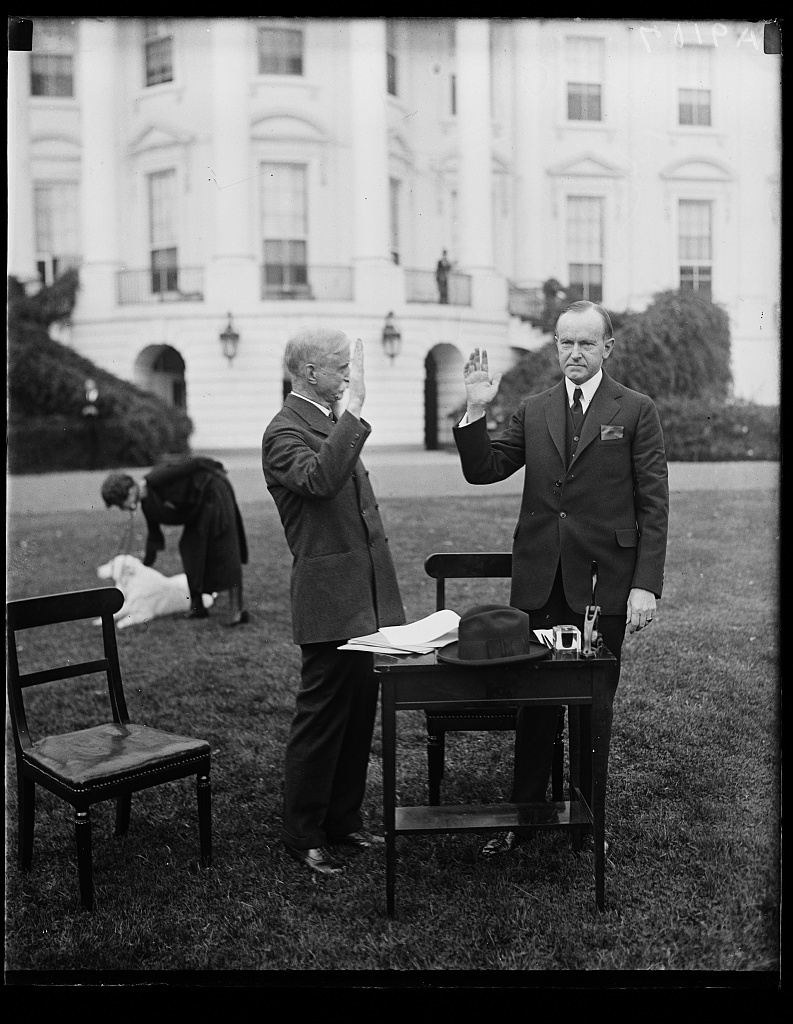
District of Columbia Circuit Judge Josiah A. Van Orsdel, functioning as a polling judge, administers an oath of qualification to this most famous voter, Calvin Coolidge, 1924. The Coolidges would vote by absentee ballot that year since national responsibilities kept them out of their home precinct in Massachusetts. Mr. Coolidge will fill out the ballot himself at this desk on the White House lawn. Grace would do the same. They still made a point of leading by example. Courtesy of the Library of Congress.
“The public press under an autocracy is necessarily a true agency of propaganda. Under a free government it must be the very reverse. Propaganda seeks to present a part of the facts, to distort their relations, and to force conclusions which could not be drawn from a complete and candid survey of all the facts. It has been observed that propaganda seeks to close the mind, while education seeks to open it. This has become one of the dangers of the present day.
“The great difficulty in combating unfair propaganda, or even in recognizing it, arises from the fact that at the present time we confront so many new and technical problems that it is an enormous task to keep ourselves accurately informed concerning them. In this respect, you gentlemen of the press face the same perplexities that are encountered by legislators and government administrators. Whoever deals with current public questions is compelled to rely greatly upon the information and judgments of experts and specialists. Unfortunately, not all experts are to be trusted as entirely disinterested. Not all specialists are completely without guile. In our increasing dependence on specialized authority, we tend to become easier victims for the propagandists, and need to cultivate sedulously the habit of the open mind. No doubt every generation feels that its problems are the most intricate and baffling that have ever been presented for solution. But with all recognition of the disposition to exaggerate in this respect, I think we can fairly say that our times in all their social and economic aspects are more complex than any past period. We need to keep our minds free from prejudice and bias. Of education, and of real information we cannot get too much. But of propaganda, which is tainted or perverted information, we cannot have too little” — President Calvin Coolidge, “The Press Under a Free Government,” before the American Society of Newspaper Editors, Washington, D. C., January 17, 1925 (Foundations of the Republic, pp.184-5).